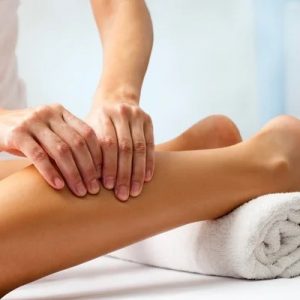Why Massages Are Far More Than A Luxury
By: Tracy Smith
When you think of getting a massage do you think of it as an indulgent treat for yourself or do you consider the many physical and mental benefits you are receiving? Unfortunately, there appears to be a widespread opinion about massage being a luxury and a guilty pleasure. But in reality, massage therapy has endless health benefits that outweigh the popular thought of massage therapy just “feeling good” and is “relaxing”.
Massage Is Most Certainly Not a Luxury
Most people, especially women seem to feel a sense of guilt when taking time and money for themselves and treating themselves to a massage. Self-care and one’s well-being should be at the top of everyone’s list. We are all busy in our daily lives and taking time out of our hectic schedules to do something beneficial for your body and soul is essential.
Routine massage therapy should be an integral component of your self-care regimen, in addition to adequate sleep, regular exercise, good nutrition, supplementation, and other healthy lifestyle choices.
Massage plays a huge role in disease and injury prevention. Research has proven that massage therapy helps to treat the symptoms of conditions as diverse as depression, chronic pain, fibromyalgia, and multiple sclerosis. Even if do not have a particular health condition, you still need the benefits of massage in your life. It can help keep your joints and muscles stay limber so you are less likely to avoid an injury. Regular massages are wonderful for dealing with stress, improving immunity and sleep and making you more refreshed and feeling productive every day.
Catch Much Needed ZZZ’s and Stress Release
High levels of stress over a prolonged period of time can be responsible for many physical and mental conditions, such as muscle tension (especially in the back, neck, and shoulders), headaches, insomnia, and even heart disease. Regular massage therapy sessions help to lower your body’s cortisol levels and help to elevate serotonin and dopamine, resulting in relaxation and a positive mood. Research has demonstrated that massage can be helpful in reducing depression, anxiety, and post-traumatic stress disorder. In particular, Swedish massage and hot stone/Himalayan salt stone massage are very effective in combating stress.
Routine massages also help to fight insomnia by helping to boost serotonin levels, which are essential to improving healthy sleep patterns. Deep tissue and Swedish massage have been proven to support the lymphatic system, which is your body’s defense system against illness. Research suggests that receiving regular massage increases white blood cell count, which in turn strengthens your immune system.

Your Muscles and Joints will Thank You
We have become a sedentary nation, especially with many of us working remotely the last few years and sitting has become the new smoking as the average American sits still for eight or nine hours every day. In addition to increased risk of cardiovascular disease, type 2 diabetes, and shortening your lifespan, excessive sitting can create a tremendous number of issues in your muscles and joints. Cornell University researchers discovered that up to 90% more pressure is applied to your lower back when you sit versus when you stand. This pressure can weaken your upper and lower back muscles which is why you may be feeling that pain in your upper body. The direct muscular effects of sitting for prolonged periods are shoulder, neck, and jaw tightness which can lead to headaches, nerve impingements, and sciatica. Your back, legs, and hips are greatly affected by that stationary position as well.
Massage therapy, in particular deep tissue massage targets the affected muscles to relieve tension and pain. Regular massage can be part of your preventative therapy as a way to stop aches and pains from developing into anything more serious. Other conditions that respond very well to massage are headaches, TMJ disorder, fibromyalgia, and plantar fasciitis as well as some digestive issues.
Massage Regularly for Self-Care
So how often should you get a massage? This answer is different for everyone. For general relaxation or minor aches and pains, at least once a month sessions are typically recommended. For someone who regularly feels stressed, who sits or drives all day for work, or who is managing a chronic pain condition, sessions are recommended once a week or twice per month. Muscle knots do not develop overnight, so it should not be expected that they will be eradicated in just a few sessions. It is important that your massage therapist discusses their recommendations for your individual situation with you in terms of frequency of massage sessions and type of massage.
Receiving regular massage can be an important part of your self-care and help prevent certain health conditions from progressing. In the long run, it could save you money on doctor’s visits, pain medication, or even surgery. Feeling better—both mentally and physically, improving sleep quality and immunity, and living with decreased pain—is not a luxury. It is a necessity !



